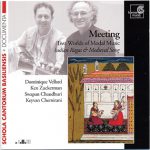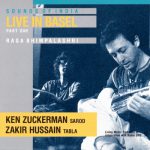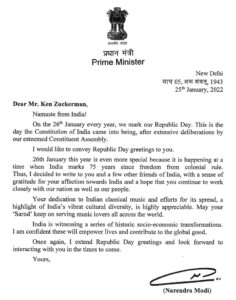Does the Study of Improvisation belong in a Music Conservatory?
Improvisation is one of those words that has a place in almost any context, from cooking to crafting, sewing to storytelling, poetry to comedy, dance to drama, and mime to music. It also encompasses a wide spectrum: from classical to folk, western to non-western, and amateur to professional. We can think of improvisation as both a skill acquired during many years of study, and as an action that is just felt in the moment. In short, improvisation is a big subject and plays a role in almost everyones’ lives.
During most all of the important periods of our music history, from the modal improvisations of medieval chant, to the extensive art of diminutions during the Renaissance, to the virtuosi cadenzas of solo concerti, improvisation was looked upon as an important measure of a musicians ability. In addition, composers throughout history have used improvisation as a tool for developing musical ideas and to help set an atmosphere for inspiration and creativity.
But as important a skill as improvisation once was for musicians, today it is rarely an integral part of a music students education. Rather, the word improvisation now usually calls to mind music styles outside the realm of a conservatory – styles like jazz, blues, and non-western traditions. Although in recent years there have been some attempts to integrate improvisation into some of the more experimental compositions, it remains nevertheless, a skill that is rarely called for in the repertoire that most conservatory trained musicians are required to perform.
But if composers and performers throughout history used improvisation extensively during the creation and execution of music, how can it be that it is not an integral part of music education today?
In fact, improvisation is still an important skill for any musician, and making it a part of a conservatory curriculum can have a beneficial result in many aspects of a students musical development. From technical skills, to ensemble playing, to memorizing pieces more quickly, to analysis and interpretation, learning to improvise sharpens many of a musicians skills and even trains new abilities that may otherwise never develop. For instance, it gives a performer an instant taste for composing, and in performance, can help develop a stage presence that is more relaxed and which enables one to react better in the moment. Whether to bring in an element of spontaneity, or just to recover more quickly from a mistake or lapse of memory, the ability to improvise is beneficial to all aspects of musicianship.
Let us look again briefly at the subject from several perspectives: historical, pedagogical, and purely musical.
Historical – As mentioned above, in our western music tradition, improvisation was once an important part of a musicians training and was used extensively in performance. From the medieval periods onwards, both composers and performers were often times cited as being fluent improvisers, able to leave their listeners spellbound during long passages of improvisations. Virtuosic violinists used to show off their skills at improvisation during extended extemporare cadenzas. Beethoven was a master of improvisation and was said to have even been able to improvise fugues (regularly won contests in improvisation.) Chopin and Liszt were also known for their improvisatory skills. Its prevalence alone as an important skill is a good reason for musicians today to at least have a taste of this practice. Whether or not a student becomes a master of improvisation, it also gives him/her both a direct link to, and a common thread of experience with, performers and composers from past epochs and musical styles.
Pedagogical – The study of improvisation builds musical skills that cannot be learned as well by other methods. Improvising develops a part of the musical intelligence that has nothing to do with reading notes or attempting to execute one fixed interpretation of a composition. In addition it involves learning a process of immediate listening, analysis and execution, which goes far beyond the usual skills developed in ear training classes. Improvising develops not only a quicker kind of instant listening, but also helps develop a feedback mechanism that sharpens a musicians ability to react in the moment and build upon the music being developed. It is also an excellent measure of a students understanding of the compositional elements of a given style. Combined with analysis and practical exercises in composing, improvisation may be thought of as one of the highest measures of a students complete understanding of a given style.
Purely musical – There are indeed, many convincing reasons why all music students should learn to improvise. Perhaps the most important is that improvisation, both by composers and performers, played an important part in the performance of much of the music that is still heard in concert halls today! But in addition to all the justifications and benefits- technical, compositional, etc. – there is an additional reward that is purely musical in nature – and hard to resist. Once learned, improvisation is actually fun and gives a musician an additional sense of satisfaction in participating in the creation of music in the moment!
San Rafael, California September 1, 1995.
Ken Zuckerman teaches improvisation courses in Medieval music and the classical music of North India at the Schola Cantorum Basiliensis, Hochscule Musik, and Allgemeine Musikschule of the Music Academy of Basel and the Zurich Hochschule der nste. He is also the director of the Ali Akbar College of Music – Switzerland.






